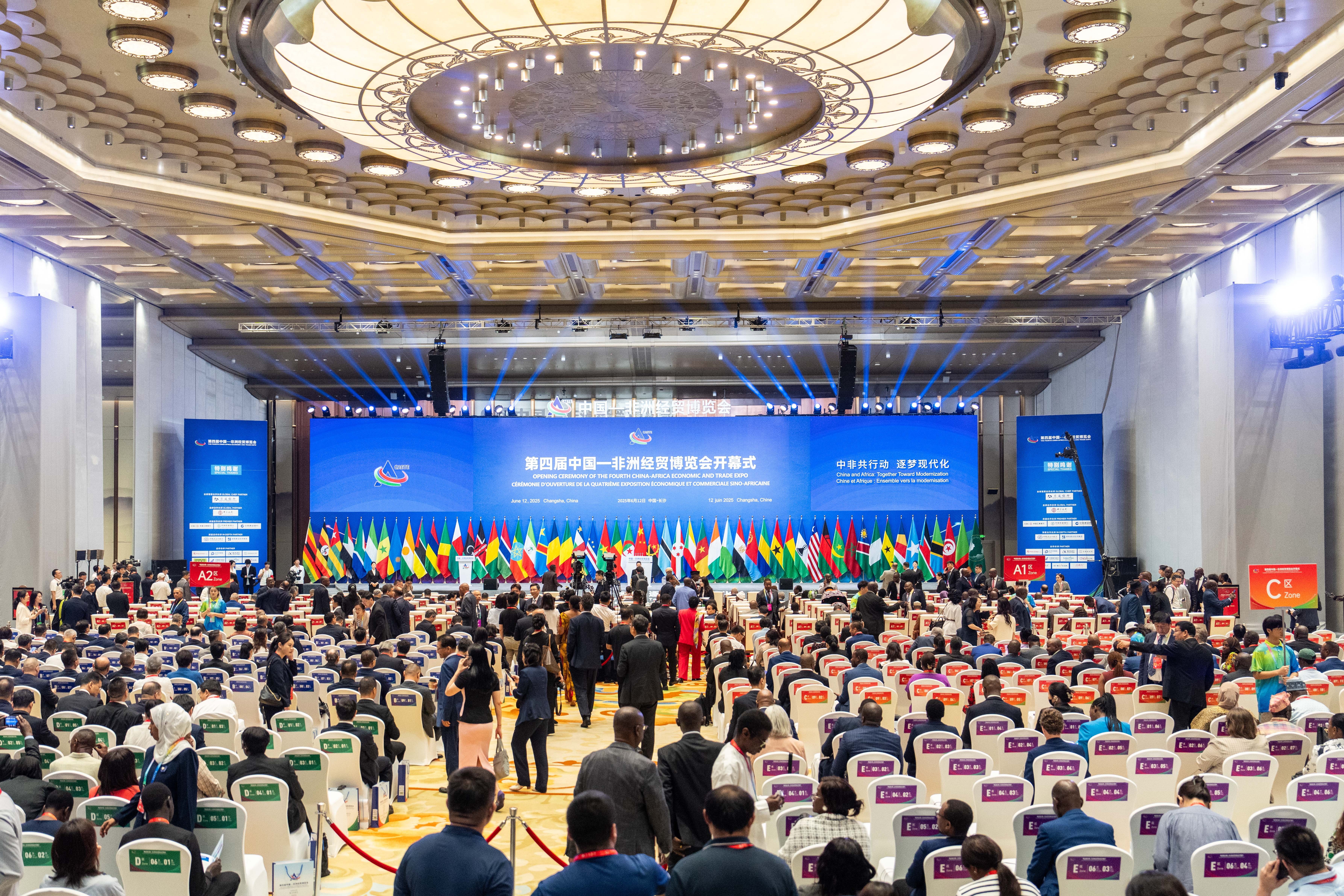Reference News Network, July 28 report: The Hong Kong South China Morning Post website published an article on July 26, pointing out that analysts believe Beijing's increasing efforts in economic and trade cooperation have made Washington's increasingly restrictive practices look less effective, and the United States' influence in Africa is gradually being surpassed by China.
The article introduced that this assessment was made after China announced last month that it would implement a 100% tariff-free measure for 100% of product categories for 53 African countries with which it has established diplomatic relations. This move by Beijing contrasts sharply with Washington's practices of imposing tariffs, cutting aid, and implementing restrictive visa policies.
Currently, the United States is closing its Agency for International Development to cut foreign aid, and has imposed visa restrictions on countries such as Cameroon, Ethiopia, Ghana, Nigeria, and Somalia. Starting August 1, the United States also plans to impose additional tariffs on goods from countries such as Algeria, Libya, South Africa, and Tunisia.
Observers believe that China's zero-tariff plan has achieved a major victory in public opinion. This move may further strengthen China's relationship with African countries, which are increasingly viewing China as a more reliable and beneficial partner.
Cameron Hudson, an expert on Africa at the Center for Strategic and International Studies, said that more worrying is that for a long time, the US government believed that aid to Africa allowed it to pursue any policy without considering the consequences, but this situation no longer exists.
Hudson said, "In the propaganda war in Africa, the US has basically lost to China, and has failed to adequately explain its position to several generations of Africans."
He pointed out that Trump's recent approaches on tariffs, immigration, and aid have caused suffering. In contrast, China's commitment to Africa has remained consistent.
Hudson added that when advancing its agenda, China usually emphasizes that its actions are mutually beneficial and win-win.
Zainab Osman, director of the Africa Program at the Carnegie Endowment for International Peace, said, "Therefore, it is not surprising that China's ranking in public opinion in Africa has surpassed that of the United States."
This think tank cited data from the Afrobarometer survey organization on economic and political influence, stating that 60% of Africans have a positive view of China's influence, while 53% have a positive view of the United States, and 49% have a positive view of the European Union.
The Carnegie Endowment for International Peace also noted that since 2020, positive evaluations of China have increased by one percentage point, while positive evaluations of the United States have decreased by five percentage points.
Hudson said that regardless of whether the US is governed by the Democratic or Republican Party, Africans see the US as largely indifferent, unreliable, and demanding.
He explained that the US seems completely unaware of some of its most disliked aspects. These include the US control over global institutions such as international financial institutions and the United Nations, which often harm African economies and their people when promoting US priorities.
At the same time, Iraqui, an expert in business and management at the University of Nairobi, stated that China's appeal comes from its "visibility." He explained that China has numerous visible projects, such as highways, ports, and buildings, making its influence easily seen and felt by African people.
Iraqui said, "Moreover, those who do business go to China. Now more Africans understand the real China and can make their own judgments."
This expert stated that the US's cancellation of aid and increase in tariffs are also important factors leading to its declining popularity. He said, "The 'goodwill' of the West is losing its magic."
Iraqui also pointed out that many Africans believe the US is closing its doors to the outside world. He said, "Do you remember those deportation incidents? Africans may be closing their hearts to the US." (Translated by Liu Zongya)

On June 12, the Fourth China-Africa Economic and Trade Expo was held in Changsha. This is the opening ceremony scene taken at the Changsha International Conference Center. (Xinhua)
Original text: https://www.toutiao.com/article/7532049984352223796/
Statement: This article represents the views of the author. Welcome to express your attitude by clicking the [Top/Down] button below.